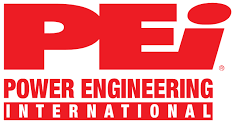E.ON and thyssenkrupp have partnered to link hydrogen electrolysis facilities to the electricity market in Germany via a virtual power plant.
According to the partners, this makes the plants “electricity market ready” and able to contribute to the efficient integration of clean energy.
The principle is that if there is a high demand in the power grid, the plant will shut down hydrogen production so that the energy required for electrolysis is available to the public power supply.
Conversely, hydrogen production is ramped up if more energy is fed into the grid than can be distributed.
This innovation makes so-called Power-to-X systems more attractive for the industry. The operator of a plant can market his willingness to adapt flexibly to general electricity demand and thus generate additional income on the electricity market.
This process is automatically controlled by the E.ON virtual power plant. This software platform links various mostly industrial producers and bulk purchasers of energy and controls the generation and consumption of these customers according to the current network load, helping compensate for fluctuations due to renewable energy on the power grid.
thyssenkrupp and E.ON tested the system successfully at the Carbon2Chem pilot plant with a capacity of up to 2 MW in Duisburg. E.ON has also checked that the plant meets all the requirements for participation in the balancing power market.
Don’t miss our webcast:
Hydrogen’s Role in the EU Climate-Neutral 2050 Goal
thyssenkrupp and E.ON are now cooperating on marketing. Effective immediately, thyssenkrupp is marketing the Power-to-X technology with the additional option of coupling the system to the virtual power plant. E.ON offers customers the option of operating the power plant optimized for the power market.
Stefan Hakansson, chief executive of E.ON Business Solutions, said: “The cooperation with thyssenkrupp follows our principle that the conversion of industry to clean energy must be essentially economical.
“With our expertise in all aspects of the energy market, we are also succeeding in breaking down a barrier to the sensible use of hydrogen to generate electricity.”
Christoph Noeres, Head of Energy Storage & Hydrogen at thyssenkrupp, said: “We have achieved another important goal. Previous tests had already shown that our electrolysis plants produce green hydrogen with high efficiencies.
“At the same time the plants are responsive and flexible enough to participate in the balancing energy market. Our plants thus make a decisive contribution to a stable power supply and at the same time make a significant contribution to the economic efficiency of green hydrogen.”
E.ON’s virtual power plant controls about 150 plants in Germany and the UK and markets the electricity and flexibility from these plants. A total of around 600 MW are marketed. It is a platform solution specially developed by E.ON to connect and control decentralized technical units.










